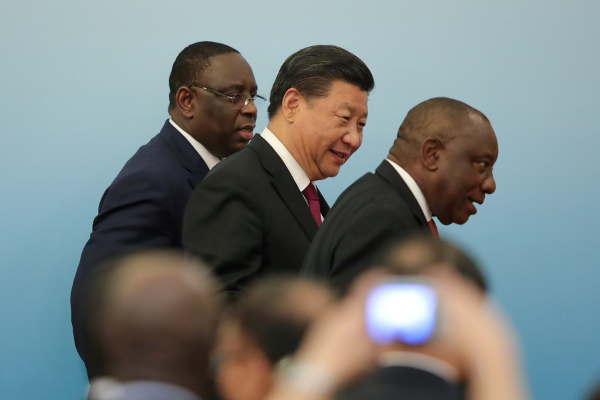Last week I was privileged to join the global union federation Building and Woodworkers International (BWI) Africa and Middle East and the FES Trade Union Competence Centre (TUCC) in Johannesburg for the Regional Chinese Multinational Corporations (MNCs) network. The theme of the meeting was “Innovative Unionism in Chinese MNCs” and aimed to discuss strategies and themes for organising and engagement.
The Amandla! Strategic Plan of BWI for 2018 – 2021 has reiterated the work on MNCs, including Chinese MNCs, as one of the “key pillars of action” in the period. The following from the meeting programme gives some context: “As more and more internationalisation of business in BWI sectors occur, the Chinese MNCs are increasing their employment and at the same time creating unfair labour practices around its supply-value chains. It states that the Plan “targets to scale-up the engagement with companies by monitoring more areas of the corporate network and at the same time conduct more strategic organising to create the widest union coverage in value chains.”
1) Member retention is made near impossible with Chinese MNCs enforcing shorter work contracts. A quote from a representative of Tanzania: ‘In Chinese companies, organising is a monthly activity’
2) Our Kenyan colleagues mentioned that as several of the projects are funded by the World Bank, this can be used as leverage against Chinese contractors.
3) The representative from Mauritius mentioned the problem of Chinese MNCs not employing local workers. Instead, they bring workers from Nepal, Bangladesh and Sri Lanka. Unions have no access to workers, and indeed there is a language barrier in organising these workers. The union is reliant on information from civil society.
4) The problem is also political, as the representative from Zimbabwe mentioned – Chinese businesses enter their country through government corruption.
5) There is a lack of Personal Protective Equipment for workers, as mentioned by the representative from Senegal.
6) Most Chinese MNCs are State-owned Enterprises, so the relationship is more political and diplomatic than business.
7) Chinese MNCs find loopholes in the labour laws and especially short term contracts seem to be the norm.







